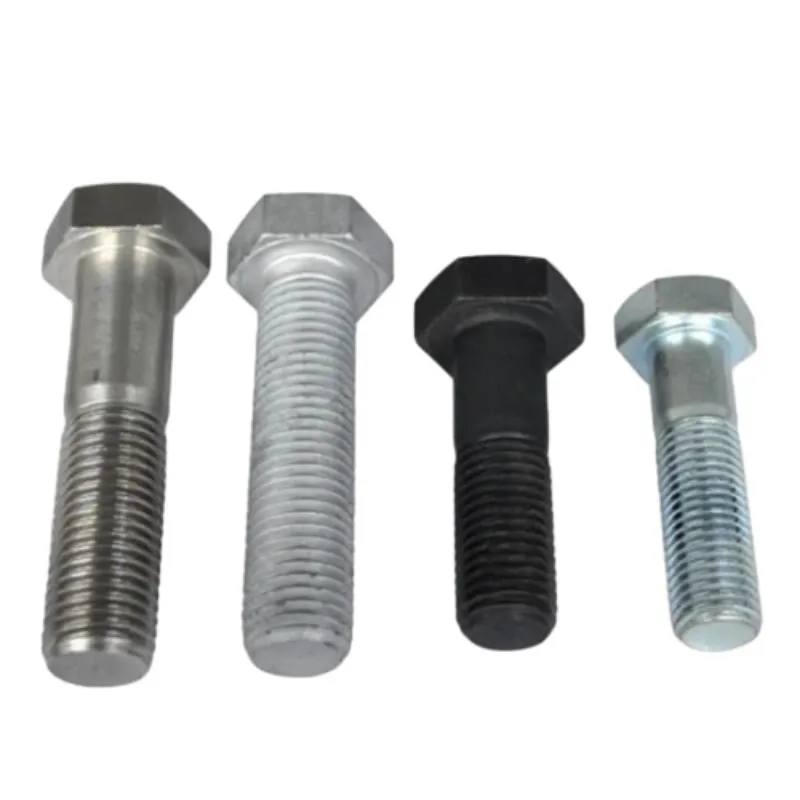nov. . 07, 2024 19:21 Back to list
M12 Nut with a 1.50 Thread Pitch for Enhanced Fastening Performance
Understanding M12 1.50 Nut A Comprehensive Guide
When it comes to fastening components in mechanical and structural applications, nuts play a critical role in ensuring the integrity and stability of the assembly. Among the various types of nuts available, the M12 1.50 nut stands out as a widely used option in engineering and construction projects. In this article, we will explore the features, specifications, and applications of the M12 1.50 nut, shedding light on its importance in various fields.
What is an M12 1.50 Nut?
The designation M12 refers to the metric thread size of the nut, indicating a nominal diameter of 12 millimeters. The 1.50 specifies the pitch of the thread, which is the distance between adjacent threads measured in millimeters. In this case, a pitch of 1.50 mm means there are approximately 1.5 mm between the peaks of adjacent threads. This combination results in a nut that is commonly used with M12 bolts or screws that also share this thread specification.
Material and Strength
M12 1.50 nuts are typically available in various materials, including steel, stainless steel, and sometimes even plastics, depending on the application requirements. Steel nuts are often coated with zinc to enhance corrosion resistance, making them suitable for outdoor and industrial environments. Stainless steel nuts offer superior resistance to rust and corrosion, making them ideal for marine, chemical, or other harsh conditions.
In terms of strength, M12 nuts are categorized according to their grade. Common grades include Grade 8 (higher tensile strength) and Grade 4 (standard strength). The choice of grade depends on the load requirements and the environment in which the nut will be used. Engineers must always consider the load-bearing capacity when selecting the appropriate nut to ensure safety and reliability.
Applications of M12 1.50 Nuts
m12 1.50 nut

The versatility of the M12 1.50 nut allows it to be used in a wide range of applications across different industries. Common usage includes
1. Automotive M12 nuts are frequently employed in automotive manufacturing for securing a variety of components, such as engine parts, chassis, and suspension systems. Their durability and strength are critical in ensuring the safety and performance of vehicles.
2. Construction In the construction of buildings and infrastructure, M12 nuts are essential for fastening structural elements like beams, brackets, and machinery. Their ability to withstand significant loads makes them indispensable in providing stability to structures.
3. Machinery and Equipment Manufacturing and assembly of machinery often require the use of M12 nuts to secure mechanical components. Whether in conveyor systems, industrial equipment, or robotics, these nuts provide reliable fastening solutions.
4. Furniture M12 nuts are also found in the assembly of various types of furniture, offering a strong connection for metal frames and supports.
Conclusion
The M12 1.50 nut is a crucial component in various mechanical and structural applications. Its compatibility with M12 bolts, availability in multiple materials, and varying grades make it a versatile choice for engineers and builders alike. When selecting the right nut for a project, it is essential to consider factors such as material, strength grade, and specific application requirements. Understanding these elements will ensure that the fastening solution not only meets technical specifications but also contributes to the safety and longevity of the assembly. Whether in automotive, construction, machinery, or furniture applications, the M12 1.50 nut remains an indispensable fastener in modern engineering.


